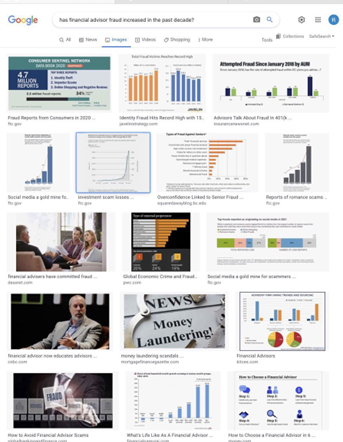Trust! Years ago, that was the keyword investors were asked to engage in when it came to an individual’s choice in a financial investor. It didn’t take long to come to the realization that “trust” was a shortfall that could not be relied on.
The awful reality was that a financial advisor’s value by financial institutions was not how much money they could make a person, but rather how much money they had under their management manifested itself as a fact that confused investors. The financial advisors were valued by the money they managed. This may sound confusing, but in the case of a financial advisor working independently or under the umbrella of a bank, the financial advisor is incentivized by what they’re able to get a person to invest with them, or buy. Was the world of investing turning into a world of the “clever financial investor”? Was a financial investor turned into more or less like a salesperson? A percent of the money they get a person to invest & what they make in profits went into their pockets. Was an individual’s money now safer? Were financial advisors given reasons to come up with clever new ways to get a person’s money? Would a banking institution or FINRA be given a reason to turn its head and look the other way?

The answer can be looked into a simple internet search! It seems that policing in itself may be in trouble. When a client makes a complaint, a decision to argue the validity of such a complaint has turned much truth to being questioned. Would a person trust a bank that argues a person’s complaint based solely on the financial advisor’s word? Would a person want to know if a financial advisor did indeed commit fraudulent acts in the past? The answer is simple. A bank should argue on a client’s behalf and his/her complaint should be investigated! Above all, there is something called “Fiduciary Duty” in which an individual’s investor should be acting in his/her best interest. Indeed, as simple as that may seem, there is FINRA to enforce those simple beliefs, but who’s watching over FINRA. In bombshell revelations, they’ve come under fire, and now there’s journalists, and investigators who have decided to take matters into their own hands. Below are a few images that should make a person think twice regarding this discussion of “trust” and “financial advisor”.

If ever in question, this little journey through the internet teaches a person to do a few things before trusting a financial advisor or a bank. Remember that money turns individuals become crooks. It may be beneficial to learn whether and how to invest, never send money overseas at an investor’s request, investigate a financial advisor’s reputation beyond a simple online search, never invest in anything his/her advisor suggests as a private investment, and never engage in any act other than business. In other words, business people should not become friends. Many of New York’s shadiest investors have committed one of finance’s major “Never Do’s”: never loan money to a financial advisor. Report it to FINRA and the bank and run. Such a person may be setting himself/herself up for a significant loss because claiming the loan was between “close friends” is a popular strategy to evade repaying. If a person engages in a private investment, a dubious “private investment” might be used to justify a loan between “business partners.” The presence of such links should have been reported to the bank in both situations, since that is a standing norm, and in a recent revelation from a bank as a ground to cite fraud as non-obligation because they didn’t know.
Keep this information in mind! It has the potential to save a reader millions of dollars! The individuals in whom everyone has faith, as well as policing bodies that may require policing!
Media Contact
Contact Person: Sonia Loveliest
Email: Send Email
Country: United States
Website: www.secatti.com
